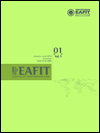Competence of the honorary consul as an administrative body based on estonian example
Main Article Content
Keywords
Honorary consul, Competence, International law, Public functions
Abstract
The roots of the institute of honorary consul derive from the classical antiquity. The Vienna Convention on Consular Relations enacted both the institution of career consul as well as honorary consul. Honorary consul is an institution with long history based on international customary law, whose activities, importance and meaning have been changing over the centuries according to needs and developments of law. The appointing of honorary consuls is related to the consent of both the sending country and the receiving country to allow honorary consuls; whereas it has not been perceived that the institution itself would be in threat of dissolving in the near future – vice versa – there is a certain tendency referring to the significance of it. The paper, based on Estonian experience analyses whether the honorary consul performs public functions and whether certain constitutional limits apply in delegating public functions to honorary consuls as private persons. The state, has a dilemma in deciding whether the necessity of performing consular functions in certain area overweight the risks which may accompany the delegation of consular functions to a private person who is a citizen of a foreign state. In Estonia, a honorary consul is appointed and his or her competence is assigned by the directive of the Minister of Foreign Affairs, the direct authorization is laid down in an administrative act. Even though an honorary consul undergoes through strict regulation and follows specific instructions, its eventual tasks are performed independently. The difference of delegating tasks to notaries is different as in case of honorary consul, the method of functional delegation prevails.
Downloads
Download data is not yet available.

